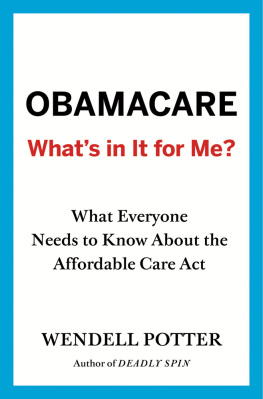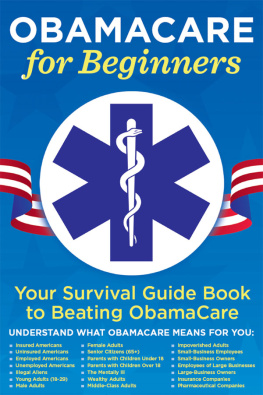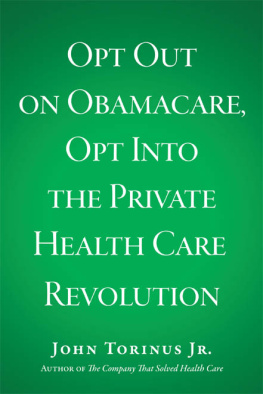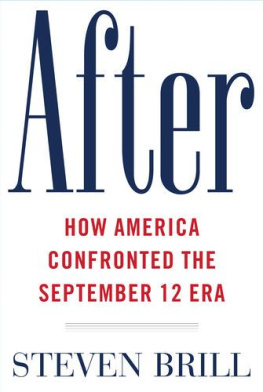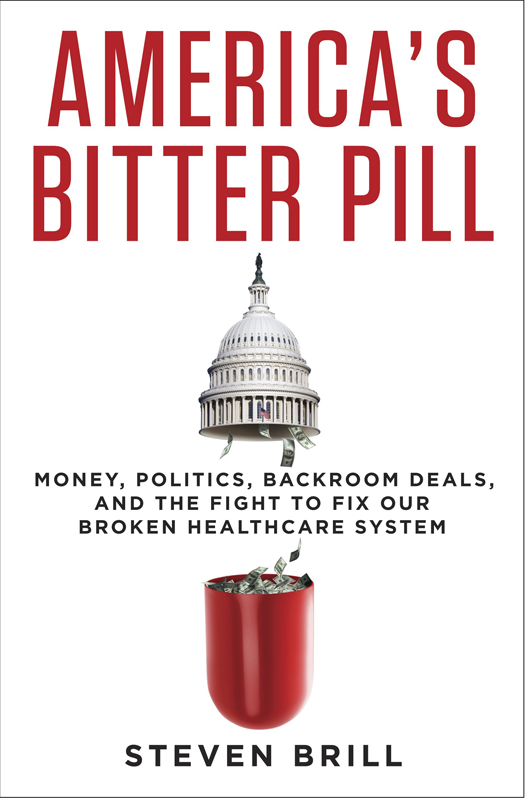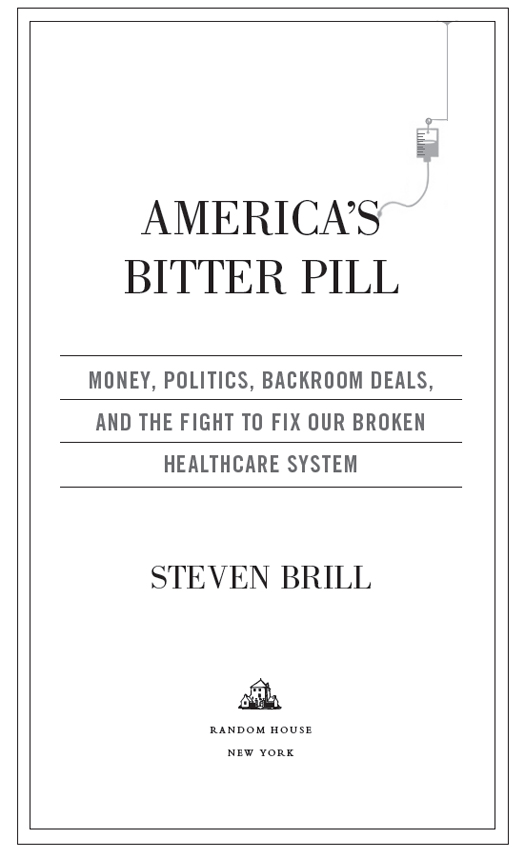Americas Bitter Pill is a work of nonfiction.
Copyright 2015 by Brill Journalism Enterprises, LLC
All rights reserved.
Published in the United States by Random House, an imprint and division of Random House LLC, a Penguin Random House Company, New York.
R ANDOM HOUSE and the H OUSE colophon are registered trademarks of Random House LLC.
ISBN 978-0-8129-9695-1
eBook ISBN 978-0-8129-9696-8
www.atrandom.com
Jacket design: Joseph Perez
Jacket illustration: C. J. Burton
v3.1_r2
CONTENTS
CHAPTER 1
LOOKING UP FROM THE GURNEY
I USUALLY KEEP MYSELF OUT OF THE STORIES I WRITE , BUT THE ONLY way to tell this one is to start with the dream I had on the night of April 3, 2014.
Actually, I should start with the three hours before the dream, when I tried to fall asleep but couldnt because of what I thought was my exploding heart.
THUMP. THUMP . THUMP . If I lay on my stomach it seemed to be pushing down through the mattress. If I turned over, it seemed to want to burst out of my chest.
When I pushed the button for the nurse, she told me there was nothing wrong. She even showed me how to read the screen of the machine monitoring my heart so I could see for myself that all was normal. But she said she understood. A lot of patients in my situation imagined something was going haywire with their hearts when it wasnt. Everything was fine, she promised, and then gave me a sedative.
All might have looked normal on that monitor, but there was nothing fine about my heart. It had a time bomb appended to it. It could explode at any momenttonight or three years from tonightand kill me almost instantly. No heart attack. No stroke. Id just be gone, having bled to death.
Thats what had brought me to the fourth-floor cardiac surgery unit at New YorkPresbyterian Hospital. The next morning I was having open-heart surgery to fix something called an aortic aneurysm.
Its a condition I had never heard of until a week before, when a routine checkup by my extraordinarily careful doctor had found it.
And thats when everything changed.
Until then, my family and I had enjoyed great health. I hadnt missed a day of work for illness in years. Instead, my view of the world of healthcare was pretty much centered on a special issue I had written for Time magazine a year before about the astronomical cost of care in the United States and the dysfunctions and abuses in our system that generated and protected those high prices.
For me, an MRI had been a symbol of profligate American healthcarea high-tech profit machine that had become a bonanza for manufacturers such as General Electric and Siemens and for the hospitals and doctors who billed billions to patients for MRIs they might not have needed.
But now the MRI was the miraculous lifesaver that had found and taken a crystal clear picture of the bomb hiding in my chest. Now a surgeon was going to use that MRI blueprint to save my life.
Because of the reporting I had done for the Time article, until a week before, I had been like Dustin Hoffmans savant character in Rain Manable and eager to recite all varieties of stats on how screwed up and avaricious the American healthcare system was.
We spend $17 billion a year on artificial knees and hips, which is 55 percent more than Hollywood takes in at the box office.
Americas total healthcare bill for 2014 is $3 trillion. Thats more than the next ten biggest spenders combined: Japan, Germany, France, China, the United Kingdom, Italy, Canada, Brazil, Spain, and Australia. All that extra money produces no better, and in many cases worse, results.
There are 31.5 MRI machines per million people in the United States but just 5.9 per million in England.
Another favorite: We spend $85.9 billion trying to treat back pain, which is as much as we spend on all of the countrys state, city, county, and town police forces. And experts say that as much as half of that is unnecessary.
Weve created a system with 1.5 million people working in the health insurance industry but with barely half as many doctors providing the actual care. And most do not ride the healthcare gravy train the way hospital administrators, drug company bosses, and imaging equipment salesmen do.
I liked to point out that Medtronic, which makes all varieties of medical devicesfrom surgical tools to pacemakersis so able to charge sky-high prices that it enjoys nearly double the gross profit margin of Apple, considered to be the jewel of American high-tech companies.
And all of those high-tech advancespacemakers, MRIs, 3-D mammogramshave produced an irony that epitomized how upside-down the healthcare marketplace is: This is the only industry where technology advances have increased costs instead of lowering them. When it comes to medical care, cutting-edge products are irresistible; they are usedand pricedaccordingly.
And because we dont control the prices of prescription drugs the way every other developed country does, we typically spend 50 percent more on them than what people or governments everywhere else spend. Meanwhile, nine of the ten largest pharmaceutical companies in the world have signed settlement agreements with federal prosecutors, paying millions or even billions in criminal and civil penalties for violating laws involving kickbacks and illegal marketing of their products. Nine out of ten.
To prove how healthcare had become an alternative-universe economy amid a country struggling with frozen incomes and crushing deficits (much of it from healthcare spending), I could recite from memory how the incomes of drug and medical device industry executives had continued to skyrocket even during the recession and how much more the president of the Yale New Haven Health System made than the president of Yale University.
I even knew the outsized salary of the guy who ran the supposedly nonprofit hospital where I was struggling to fall asleep: $3.58 million.
Which brings me to the dream I had when I finally got to sleep.
As I am being wheeled toward the operating room, a man in a finely tailored suit stands in front of the gurney, puts his hand up, and orders the nurses to stop. Its the hospitals CEO, the $3.58-million-a-year Steven Corwin. He, too, had read the much-publicized Time piece, only he hadnt liked it nearly as much as Jon Stewart, who had had me on his Daily Show to talk about it.
We know who you are, he says. And we are worried about whether this is some kind of undercover stunt. Why dont you go to another hospital? I dont try to argue with him about gluttonous profits or salaries, or the back pain money, or the possibility that he was overusing his MRI or CT scan equipment. Instead, I swear to him that my surgery is for real and that I would never say anything bad about his hospital.
Remembering a bait and switch billing trick common at some hospitals that I had written about (though not this one, as far as the nondreaming me knew), I even blurt out, I dont care if the anesthesiologist isnt in [my insurance] network. Just please let me go in.




